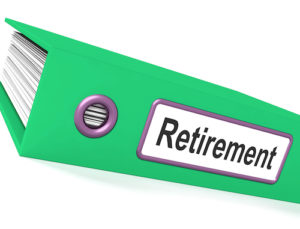 Women and Retirement. You might be asking why I’m focusing on women as the subject matter of this article. Men need to plan for retirement too, right? Of course they do. However, women have a bit more planning—and strategizing—to do, in addition to overcoming a few retirement challenges based on studies and research. And that’s okay. It’s better to be informed and prepared than uninformed and unprepared.
Women and Retirement. You might be asking why I’m focusing on women as the subject matter of this article. Men need to plan for retirement too, right? Of course they do. However, women have a bit more planning—and strategizing—to do, in addition to overcoming a few retirement challenges based on studies and research. And that’s okay. It’s better to be informed and prepared than uninformed and unprepared.
Recently, I met with a woman investor who had just entered into a second marriage. Her new husband is twelve years older than she is. With a blended family (she and her new husband have children from previous marriages) as well as differing financial priorities, she had concerns, naturally. How was she going to meet her retirement goals with the added life complexities that occurred recently? And, with her husband already being twelve years her senior, the factoid that women outlive men gave her even more anxiety. First, Kate and I did a few breathing exercises (she’s a big fan of yoga). Secondly, I educated her on a few challenges women have with retirement and guidance to overcome those hurdles.
At Schwab, we generally highlight four key considerations to help women prepare and be confident in their financial future. Keep in mind, this information should not be considered personalized investment advice or recommendations. Because each situation varies, it’s important to review for your own particular situation.
- Women may have a lengthier retirement. Women tend to outlive men by an average of six years, according to the Administration of Aging. Though a longer retirement can mean more time to travel the world and spoil grandchildren, it also means women will have to save more money to last them through their longer lifespans.
Tip: Stocks are an important part of most portfolios, even during retirement. Though you may want to gradually reduce your exposure as you get older, consider maintaining a portion of your savings in stock investments to counteract the impact of inflation. The ultimate goal is to make sure you have continued growth while not risking the money you need to live on.
- Women may have a more expensive retirement. Not only do women have to plan for more years in retirement, but they often have to anticipate higher expenses. Longer life expectancies can translate into increased medical expenses and a higher likelihood of entering a nursing home or assisted living community, or hiring formal home care, which can cost tens of thousands of dollars a year.
Tip: Medicare benefits cover some medical costs during retirement, but consider signing up for supplemental insurance, such as long-term-care insurance or a Medigap policy or a Medicare Advantage Plan.
- Women potentially have to save more to make up for earnings loss. On average, women still earn lower salaries than their male counterparts. In 2014, women still earned less than 80 cents for every dollar men earned, according to U.S. Census Bureau’s data for full-time, year-round workers’ median earnings released in February 2016. Plus, over the course of their working years, women tend to spend more time out of the workforce to care for their families, according to the AARP Public Policy Institute. To counteract the forces that are weighing on their ability to accumulate savings, women should focus on saving as much as possible during the years they are working and earning an income.
Tip: Your level of savings is the biggest factor in determining whether you can meet your retirement financial goals, so start early. But in case you procrastinate, there are ways to help catch-up. Max out your 401(k) contributions and use an automatic deposit feature so you don’t even have to think about it. Each year after you turn 50, you can contribute up to $6,000 beyond the usual limit to your 401(k). You may also be able to annually contribute an extra $1,000 to your Traditional or Roth IRA to help bulk up your savings. Review your expenses periodically to look for ways to save more, and avoid carrying a balance on your credit card to limit costly interest payments.
- Women may receive less in Social Security benefits. Lower salaries and fewer years in the workplace also put women at a disadvantage when it comes to Social Security benefits. In fact, women earned on average about 20% less in Social Security than men in 2013, according to the Social Security Administration. While this may be difficult to accept, women who may become widows due their longer life expectancies should consider how they can maximize their Social Security survivor benefits.
Tip: Consider delaying the start of your Social Security benefits. If you choose to start cashing in your Social security checks before your normal retirement age, your benefits are reduced. If you wait to some point between your normal retirement age and the age of 70, you’ll receive a higher monthly benefit. Use Social Security Administration’s calculators to determine your breakeven age—the point at which you break even and begin to come out ahead if you delay Social Security.
A little daunting to some, right? Here’s the good news: arming yourself with information can empower you to take action and leap over those obstacles, effectively putting you on pace to help reach your retirement goals. 
Jennifer Furste Robinson, Certified Wealth Strategist, is a Managing Director at Charles Schwab with over 23 years of experience of leading financial professionals in helping their clients achieve their financial goals. She is a recipient of 2015 Professional Businesswomen of California Industry Leader Award, currently serves as an executive board member of Arizona Women’s Leadership and is a volunteer with Boys and Girls Club, mentoring the future female CEO’s of 2025 and beyond. Some content provided here has been compiled from previously published articles authored by various parties at Schwab.
Investing involves risk including the potential loss of principal.
Information presented is for general informational purposes only and is not intended as personalized investment advice as individual situations vary. Where specific advice is necessary or appropriate, Schwab recommends consultation with a qualified professional. (0716-2832)

















